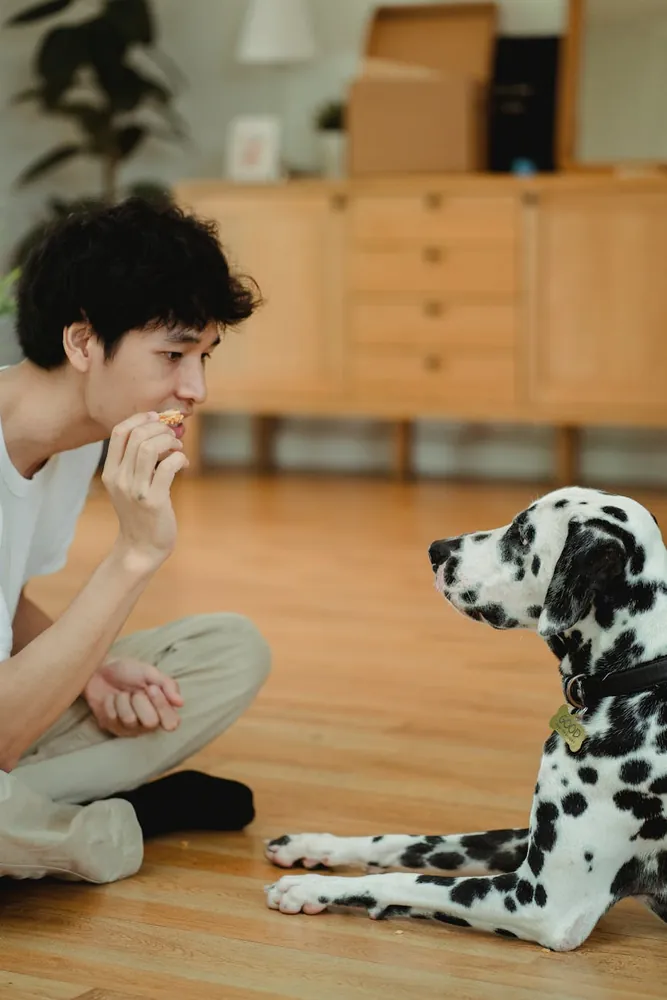Mastering Basic Commands: A Beginner's Guide for Puppy Owners

Welcoming a New Puppy: Setting the Stage for Success
Bringing a new puppy home is an exciting and transformative experience. Puppies are full of energy, curiosity, and an eagerness to explore their world. To channel this enthusiasm positively, it's crucial to start training early. This guide will focus on effective training techniques tailored for new puppy owners, covering essential commands, socialization tips, and establishing routines.
Training a puppy is not just about teaching commands but also about building a relationship based on trust and mutual respect. A well-trained puppy is more likely to grow into a well-adjusted adult dog, making life easier and more enjoyable for both you and your furry friend.
Consistency: The Foundation of Effective Training
The cornerstone of puppy training is consistency. Puppies thrive on routine and clear communication. Consistency involves using the same commands, gestures, and rewards each time you train your puppy.
Establishing a Routine
Creating a consistent daily schedule helps puppies feel secure and understand what's expected of them. Include regular meal times, potty breaks, play sessions, and training periods. This structured routine helps minimize anxiety and provides opportunities for learning and bonding.
- Feeding Schedule: Feed your puppy at the same times each day to regulate their digestion and metabolism.
- Potty Breaks: Take your puppy out frequently, especially after meals and naps, to reinforce house-training.
- Training Sessions: Short, focused sessions twice a day can be very effective. Keep each session positive and end on a good note.
Using Clear Commands
Use simple, clear words for commands and stick to them. For example, use "sit" rather than "sit down" or "please sit." This clarity helps your puppy associate specific words with actions more easily.
Positive Reinforcement: Encouraging Good Behavior
Positive reinforcement is a powerful tool in puppy training. Rewarding desired behaviors encourages your puppy to repeat them.
Choosing the Right Rewards
Rewards can vary depending on what motivates your puppy. Common rewards include treats, verbal praise, and playtime. Make sure treats are small and healthy to avoid overfeeding.
The Timing of Rewards
Timing is crucial when rewarding your puppy. Deliver rewards immediately after the desired behavior to help your puppy make the connection between their action and the reward.
Engagement: Making Training Fun
Puppies have short attention spans, so it's important to keep training sessions engaging and fun. Use toys and games to maintain your puppy's interest and excitement about learning new things.
Interactive Games
Games like fetch or hide-and-seek can be great for teaching recall ("come") commands while also providing physical exercise.
- Fetch: Incorporate commands like "fetch," "bring," and "drop" during play to make learning seamless.
- Hide-and-Seek: Call your puppy's name from another room to encourage them to find you. Reward them with treats or praise when they do.
The Framework: Consistency, Positive Reinforcement, Engagement
This simple framework combines consistency, positive reinforcement, and engagement to create an effective training environment for your puppy.
- Be Consistent: Set routines, use clear commands, and ensure everyone in the household follows the same practices.
- Use Positive Reinforcement: Reward good behavior immediately to strengthen desirable actions.
- Keep It Fun: Use interactive games and varied activities to maintain interest and motivation.
Socialization: The Key to a Well-Rounded Puppy
Socialization is a critical aspect of puppy development. Exposing your puppy to different environments, people, animals, and experiences helps them become confident and adaptable adults.
Gradual Exposure
Introduce new experiences slowly to prevent overwhelming your puppy. Begin with calm settings before progressing to more stimulating environments like busy streets or parks.
- Meet New People: Invite friends over or arrange safe meetups with other pet-friendly individuals.
- Diverse Environments: Vary your walking routes to expose your puppy to different sights and sounds.
The Importance of Other Dogs
Interacting with other dogs teaches puppies important social cues and behaviors. Arrange playdates with vaccinated dogs or attend supervised puppy classes.
Troubleshooting Common Training Challenges
Puppy training can sometimes be challenging. Understanding common hurdles helps you address them effectively without frustration.
Biting and Nipping
Puppies explore the world with their mouths, often leading to biting. Redirect this behavior by providing chew toys or teaching commands like "gentle." If biting continues, consider consulting a professional trainer for guidance.
Inconsistent Response
If your puppy doesn't consistently respond to commands, assess the environment for distractions or ensure that you're using high-value rewards. Revisit the basics if needed to reinforce understanding.
The Long-term Benefits of Training
A well-trained dog enhances the bond between pet and owner. Investing time in training during the early months leads to a harmonious household where both human and canine family members coexist happily.
Your commitment to mastering basic commands lays the foundation for advanced training in the future. With patience, persistence, and love, you'll raise a loyal companion who enriches your life in countless ways.
